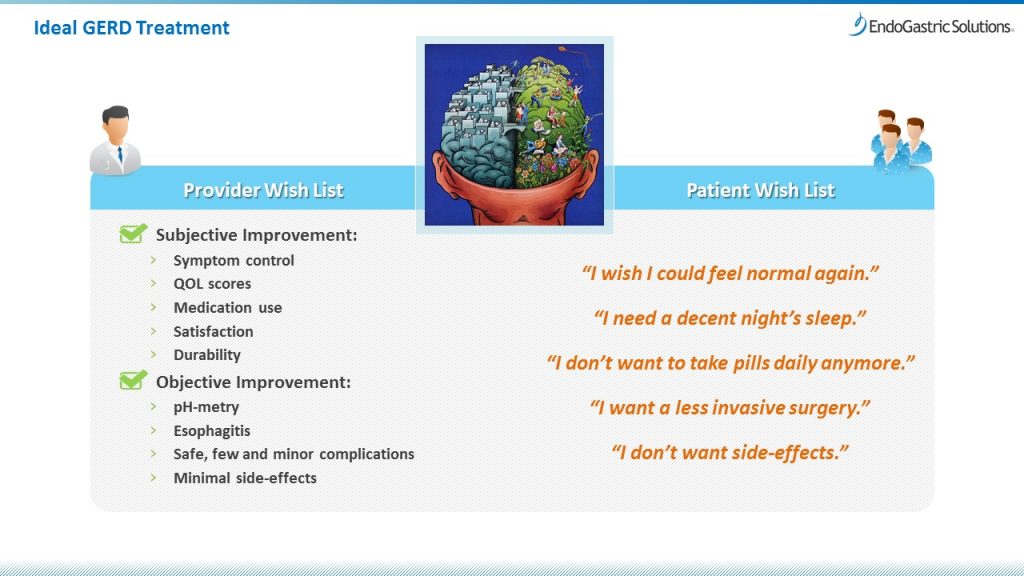Selecting questions to ask
When it comes to discussing gastroesophageal reflux disease (GERD), it’s best to have questions for your doctor and request clarification if you don’t fully understand something. You should to go to your appointment armed with a list of questions and with a plan to take written notes. We also encourage you to ask a family member or friend to go with you to listen and help with notes. This can help you remember the specifics about what you wanted to know about your GERD symptoms and the treatment available. It can also keep you from feeling overwhelmed.
Below are some questions you may want to discuss with your doctor:
Questions about acid reflux / GERD
- Do I have GERD or simply acid reflux?
- What causes GERD?
- What symptoms lead you to believe I have GERD?
- Is my case mild, moderate, or severe?
- What conditions separate from GERD could be agitating my symptoms?
- Which tests do you recommend to diagnose GERD and why?
- What complications can GERD lead to down the line?
- Everyone’s anatomy is different. What are the chances my chronic GERD might progress to a more serious condition?
Questions about treatment options
- What are the treatment options for GERD?
- Which treatments do you recommend for me and why?
- What are the benefits of my treatment options? The risks?
- How long can I expect my GERD symptoms to last?
- What can I expect the progression of my GERD to be over time?
- What symptoms or signs should I look out for?
- Do I have non-acid reflux?
- Do I have a hiatal hernia? If so, what type and how large?
Questions about lifestyle changes
- Are there any lifestyle changes I can incorporate to lessen my GERD symptoms? Which do you recommend first?
- What foods should I eat to help control my symptoms?
- What foods or substances should I avoid to manage my symptoms?
- Will losing weight help my GERD?
- Can sleeping with my head elevated help my nighttime symptoms?
Questions about medical therapy
- When should I take antacid vs H2 blockers vs PPIs?
- What are the major differences between over the counter and prescription medications?
- Do I need prescription medicine?
- What is the best time of day to take my medication?
- Can I take my medication as needed or do I have to take it routinely?
- How long should I take medication for?
- What side effects or risks can I expect?
- Are there any medications that I am currently taking that can interact with the medications you may prescribe for GERD?
- Are there any adverse effects of long-term use of PPIs?
- Is it true that PPIs and other medication treatments can lose their effectiveness over time?
- What is the “rebound effect”?
Questions about antireflux procedures and surgery
- Is the TIF procedure or traditional antireflux surgery appropriate for me?
- Is the TIF procedure or traditional antireflux surgery a better choice than taking over the counter and prescription medication regularly to treat GERD?
- How does the TIF procedure differ from traditional surgeries?
- What are the benefits? The risks?
- How well do the TIF procedure and traditional antireflux surgeries work?
- What has been your success rate with antireflux procedures?
- What is the difference between a total and a partial fundoplication?
- Will I ever need to have another procedure after the TIF procedure for reflux?
- If I choose the TIF procedure now, will I still be eligible for traditional surgery later, if needed?
- Of all the procedures and surgical techniques available, which do you offer?
Asking your doctor some of these questions about GERD can help you to determine the right course of treatment for you. In addition to bringing questions for your doctor, you can also study other resources for GERD. If you aren’t sure who to ask, you can find a physician that treats GERD near you.


